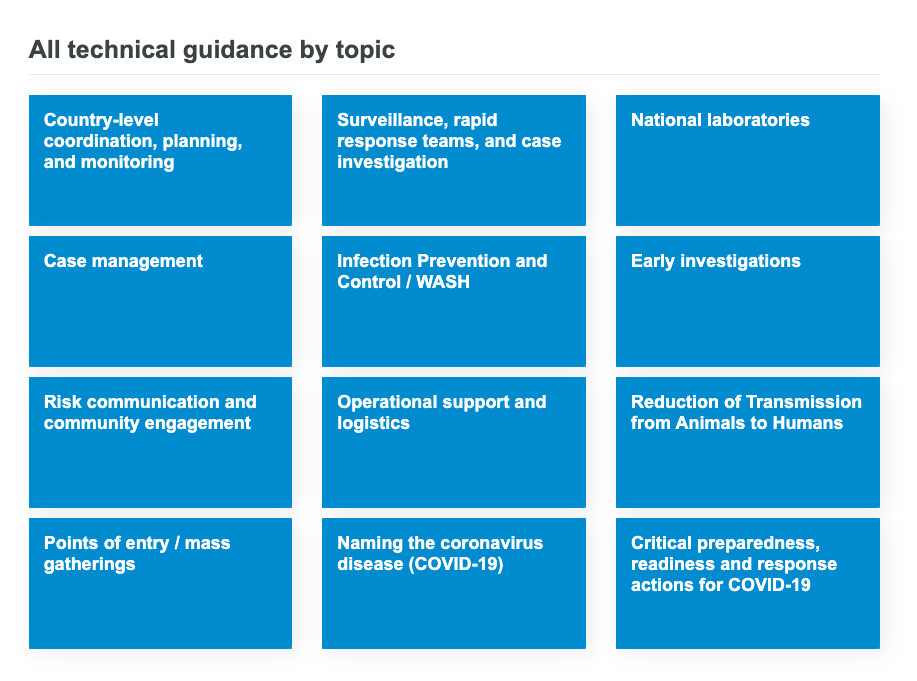The World Health Organization (WHO) prioritized nine key areas for research and development in its recently published global roadmap on the novel coronavirus disease (COVID-19).
"The roadmap will focus on the current life-saving research, as well as some long-term projects on vaccines and therapeutics development, WHO Director-General Dr. Tedros Adhanom Ghebreyesus stressed at a daily media briefing on March 6.
It is important for organizations that fund research to have a clear sense of what the public health priorities are, so they can make investments that deliver the biggest public health impact, Ghebreyesus added.
Coordinated research is essential to allow different research teams around the world to complement and learn from each other. The WHO has also created technical guidance outlining criteria for how research should be conducted.

Screenshot from WHO website
Screenshot from WHO website
"To date, we have received 40 applications for the approval of diagnostic reagents. Twenty vaccines are being developed, and a lot of therapeutics are under clinical trials," Ghebreyesus pointed out.
Coronavirus vaccine for emergency use in April
After Chinese scientists released the genome sequence of the novel coronavirus in early January, scientists around the world are working around the clock to develop vaccines and drugs.
On Friday, Zheng Zhongwei, director of the National Health Commission's Science and Technology Development Center, said that China was moving full steam ahead to develop vaccines for the coronavirus.
"According to our estimates, we are hopeful that in April some of the vaccines (that are being developed) will enter clinical research or they would be of use in emergency situations," he added.
China has a fast track on vaccine development if vaccines are urgently needed for major public health emergencies. The National Medical Products Administration will weigh the pros and cons of treatments and risks, and then decide whether to give the green light.
Zheng said currently eight vaccine research institutions in China are involved, and the development of different types of vaccines are also moving forward.
According to VOA's report, a U.S.-based biotechnology company Moderna shipped its vaccine last month to the National Institute of Allergy and Infectious Diseases (NIAID) to begin human testing.
But Dr. Anthony Fauci, director at NIAID, said at a recent White House briefing the whole process of approving an effective vaccine is going to take at least a year.